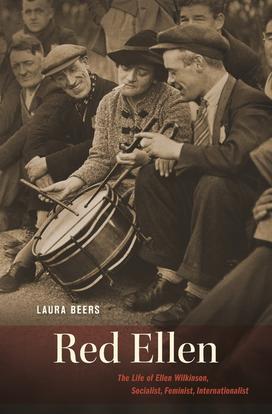Historian Laura Beers ’00 Chronicles the Pioneering Life of Britain's "Red Ellen"
The book: “Red” Ellen Wilkinson — so-called because of her auburn hair and socialist leanings — is best known for fronting the 1936 Jarrow Crusade, a 300-mile march from Tyneside, England, to London undertaken by 200 unemployed shipwrights and steelworkers to petition for government assistance. Red Ellen: The Life of Ellen Wilkinson, Socialist, Feminist, Internationalist (Harvard University Press), explores Wilkinson's political career: she would go on to help found the British Communist Party, was the 10th woman to gain a seat in parliament, and went to San Francisco as one of the few female delegates to the first meeting of the United Nations. At her death in 1947, she was Minister of Education — the second woman to have served in the British cabinet.
Wilkinson, who came from a working-class family in Manchester, also looked beyond Britain’s borders. Though Laura Beers ’00’s book trains its spotlight on Wilkinson, it also serves as a look into a time when men and women from an unprecedented array of backgrounds worked to reshape the domestic, imperial, and international affairs of their era. Looking back to that period, Beers argues, can help raise important questions about the past and the future of the British left.

Opening lines: “Born to a working-class family in south Manchester, Ellen Wilkinson had not left the northwest of England by the time she won a scholarship to the University of Manchester in 1910. In the thirty-five years that followed, she helped found the British Communist Party and met Russian revolutionaries Vladimir Lenin and Leon Trotsy in Moscow. She was the tenth woman to gain a seat in parliament and became a renowned advocate for the poor and disposed at home and abroad.”
Reviews: Andrew Thorpe, author of Parties at War: Political Organisation in Second World War Britan, says, “Extremely well researched and exceptionally well written, Red Ellen is work of the very highest caliber by an immensely talented historian of twentieth-century Britain.”












No responses yet